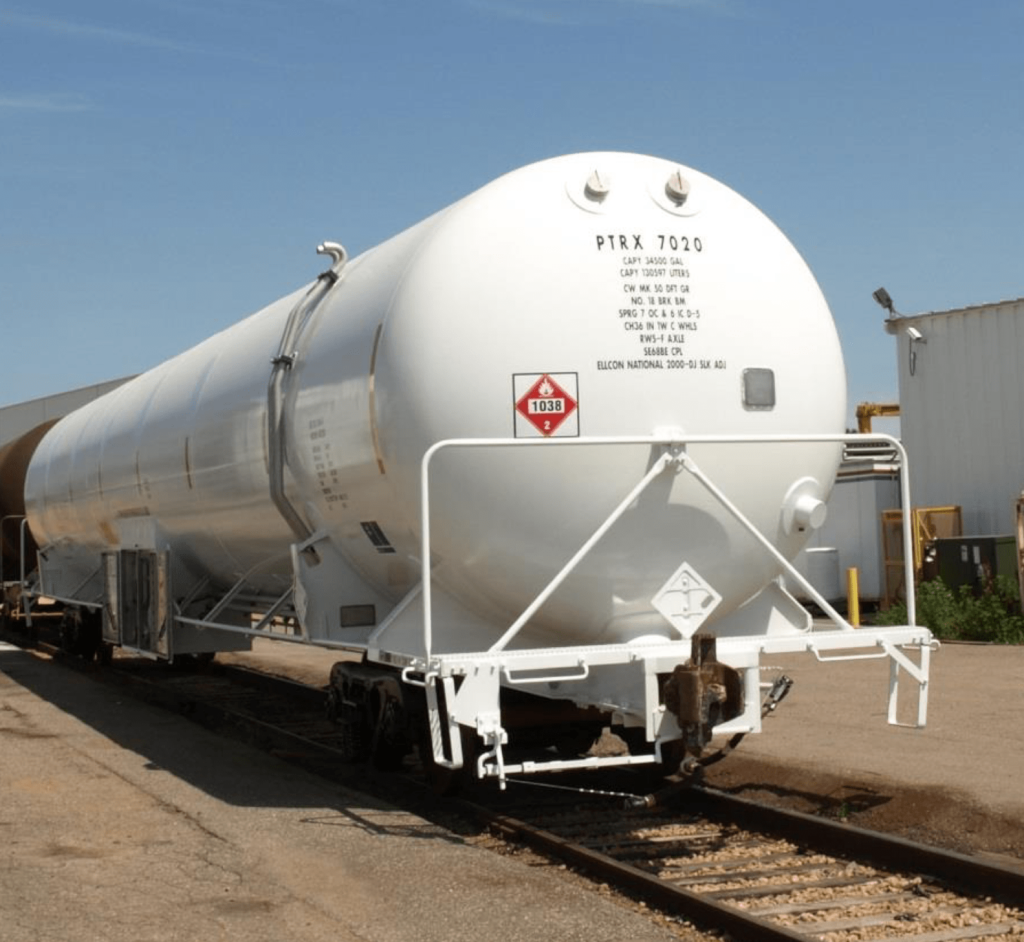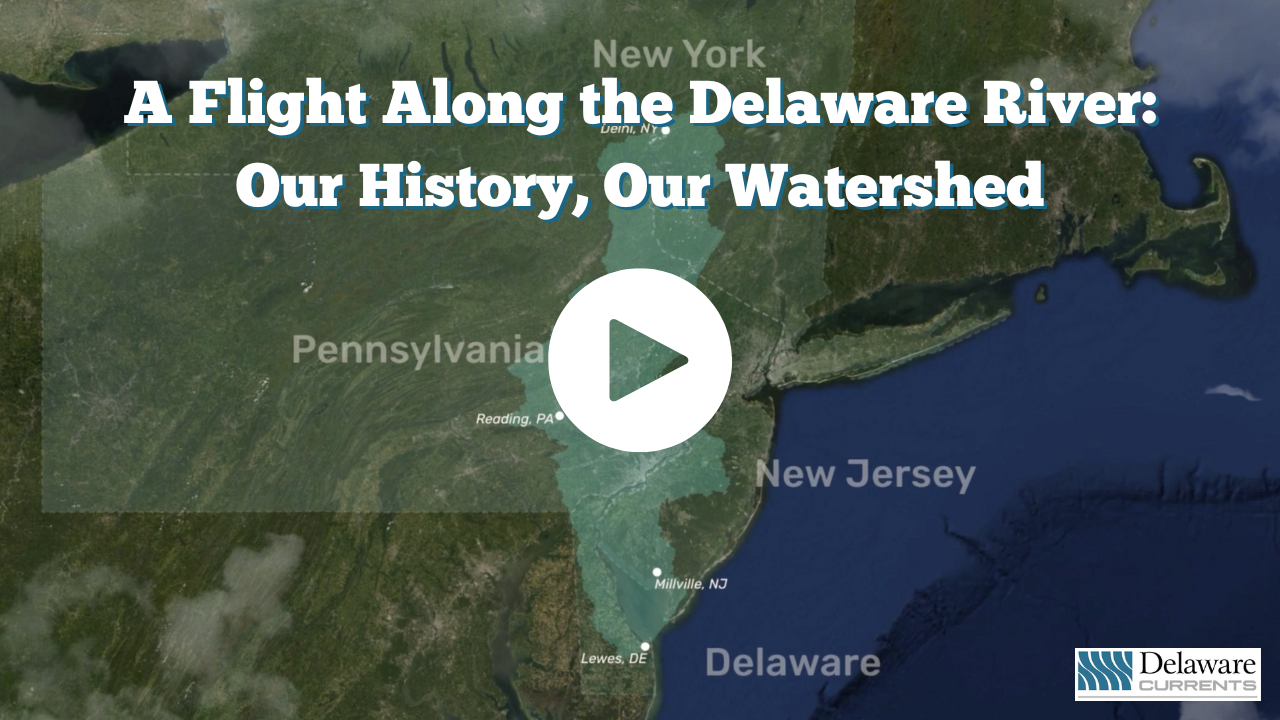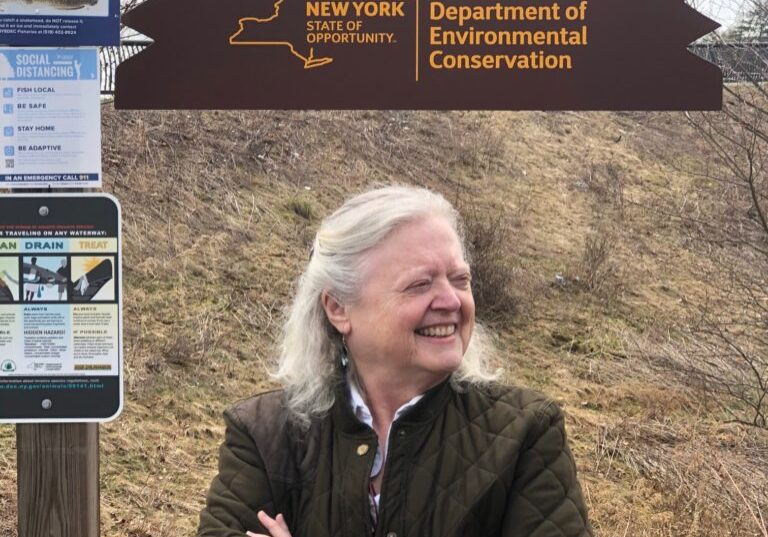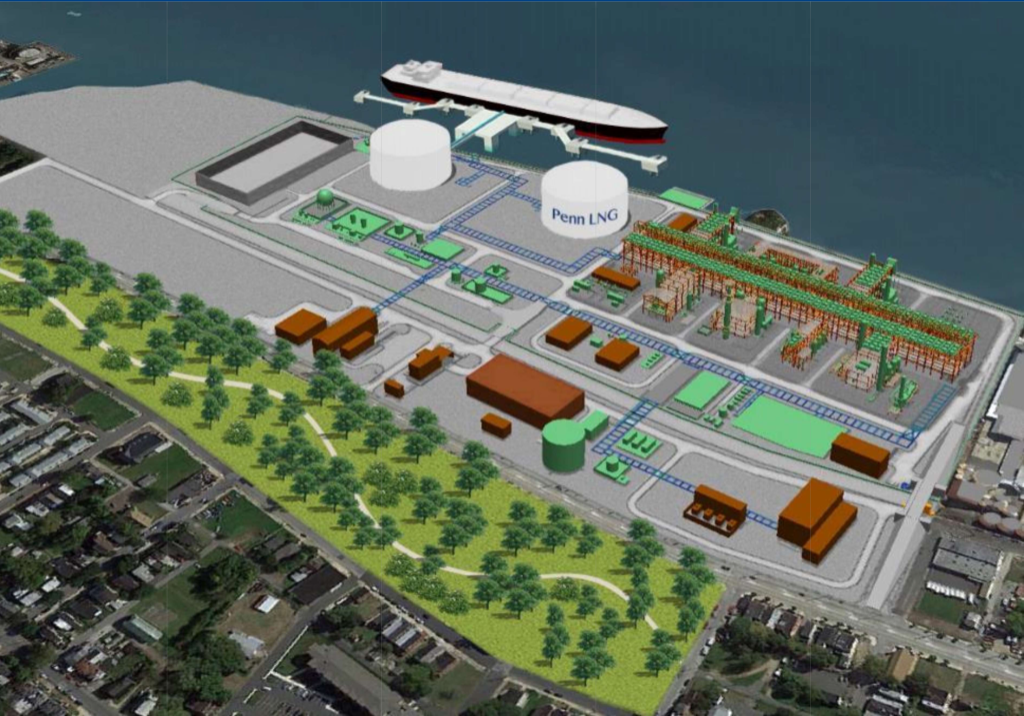
Plan to transport LNG by rail to Delaware River port hits yet another snag
| September 7, 2023

For our complete coverage of the Wyalusing, Pa./ Gibbstown, N.J. LNG project, please click here.
Federal regulators have pulled on yet another loose string in what has been the slow unraveling of a plan to export liquified natural gas from a New Jersey port on the Delaware River.
The latest setback to the proposal by New Fortress Energy came from the Pipeline and Hazardous Materials Safety Administration, which last week suspended a Trump-era rule allowing the transportation of highly volatile LNG by rail cars.
The suspension kneecaps, at least for two years, one leg of a multi-legged approach to exporting LNG by New Fortress.
The company had planned to take natural gas sent via pipeline to a proposed liquification plant in Wyalusing in Northeastern Pennsylvania, where it would be super-cooled and as much as 3 million gallons of LNG a day would be transported by rail and highway tankers to a port in Gibbstown, N.J., on the Delaware. From there, it would be shipped overseas.
One train car could roughly carry triple the volume of a single highway tanker, and plans called for trains of up to 100 specialized tankers to make the trip to Gibbstown.
However, the project has been beset by regulatory delays, adverse economic head winds and opposition by community and environmental groups, which referred to the long line of rail tankers as “bomb trains.”
Routes mapped by opponents show that various rail and highway routes could cut through as many as 18 Pennsylvania and New Jersey counties, 15 of them in the Delaware River watershed.
New Fortress previously gained a special carve-out permit that allowed it to transport LNG by rail but the PHMSA denied a renewal of that permit in April.
Even with that door closed, there remained a narrow window in which New Fortress could still ship LNG by rail, and that was under a broader, national rule issued in 2020 under the Trump administration.
However, that rule required the use of even more robust and improved cryogenic DOT-113C120W9 tank cars.
As Delaware Currents has previously reported, experts said there was no market demand for those tankers and they would be extremely costly and time-consuming to build — in essence putting down spike strips on that path forward.
“We need to do more safety investigative work,” The Associated Press quoted Tristan Brown, the deputy administrator who is leading the PHMSA, as saying. “Until we do that work, we don’t want someone to, you know, make investments and deploy something where we haven’t fully done the process we normally do need to do.”
Brown acknowledged that the rule was rushed under a directive from former President Donald Trump, so it needed to be refined.
In a statement, PHMSA acknowledged the lack of development of the specialized rail tankers.
“There has been no transportation of LNG by tank car since the previous administration finalized the 2020 rule that allowed it, and PHMSA is not aware of any orders to build the required rail cars to transport it,” it said.
In suspending the national rule, the administration said LNG-by-rail would not occur “before updated research on safety is completed or a revised rulemaking is completed by June 30, 2025, whichever is earlier.”
It added, “This suspension will minimize potential risks to public health, safety and the environment.”
A press representative for New Fortress did not respond to a request for comment.
Opponents, including the Natural Resources Defense Council, which was one of a number of groups and 14 states that had gone to court over the national rule, hailed the PHMSA’s decision.
“New Fortress Energy’s proposed LNG project endangers nearly two million people living near truck and rail transport routes,” said Kimberly Ong, a senior attorney at the NRDC. “LNG is a volatile substance that can lead to fires and even explosions. The rail disaster in East Palestine, Ohio, earlier this year underscores how serious a train derailment involving hazardous substances can be.”
Ong continued: “People of Pennsylvania and New Jersey living near key rail lines would have faced damage to their health, families, and homes in the event of a derailment. After pausing the rule, Secretary of Transportation Pete Buttigieg should put a new rule in place that restores the ban on LNG by rail once and for all. That would finally put an end to the threat to communities around Gibbstown and other communities targeted by similar dangerous projects.”
Supporters of exporting LNG have pointed to the invasion of Ukraine as an opportunity to meet a growing global demand. After the invasion, many European countries severed ties with Russia, which was a major energy supplier.
Separately, another developer is eyeing a port in Chester, Pa., outside of Philadelphia, as a potential site to export LNG. That project, which has also drawn opposition, has yet to begin regulatory reviews, but the company behind the project, Penn America Energy, hopes to be operational by the first quarter of 2028.



![DC_Image [Image 4_Assunpink Meets Delaware] meets Delaware The Assunpink Creek on its its way to meet the Delaware River. The creek passes through woods, industrial and commercial areas and spots both sparkling and filled with litter.](https://delawarecurrents.org/wp-content/uploads/bb-plugin/cache/DC_Image-4_Assunpink-meets-Delaware-1024x768-landscape-14f069364113da5e8c145e04c9f2367c-.jpg)



